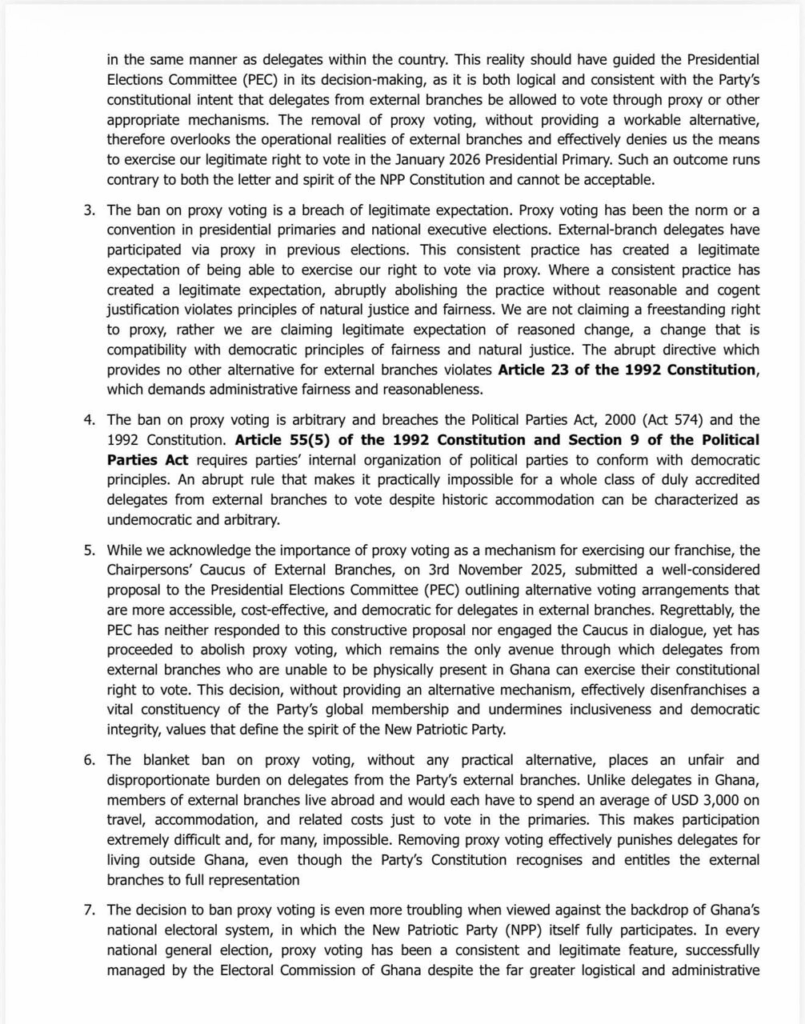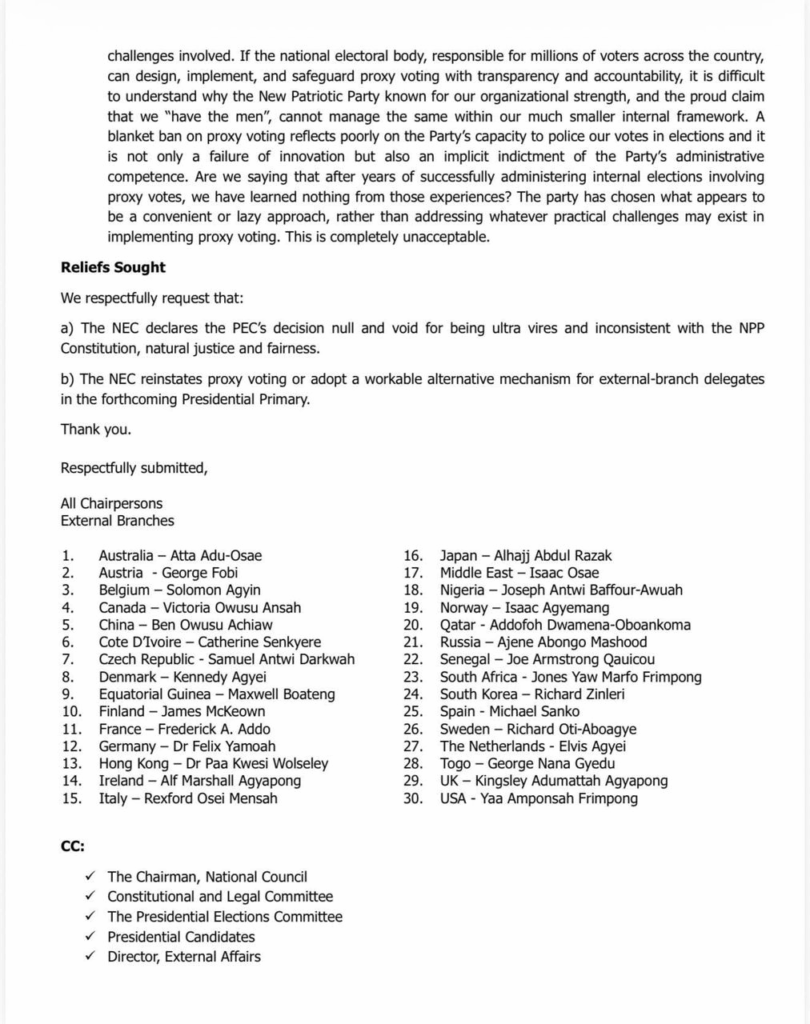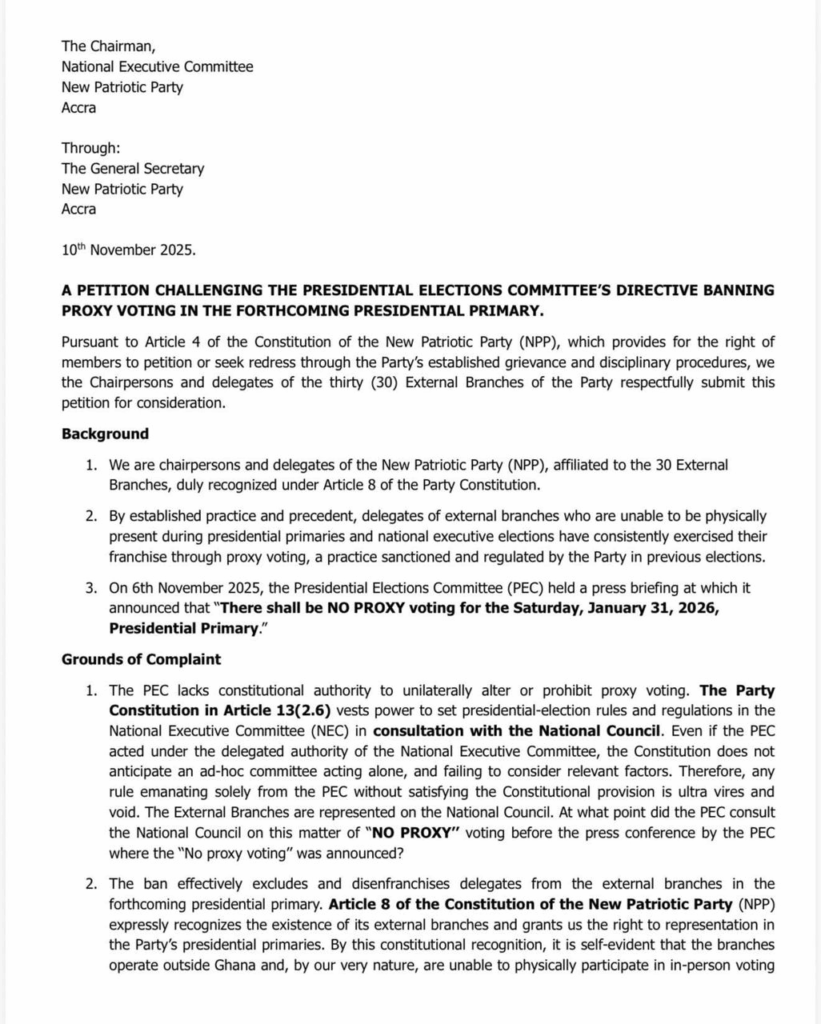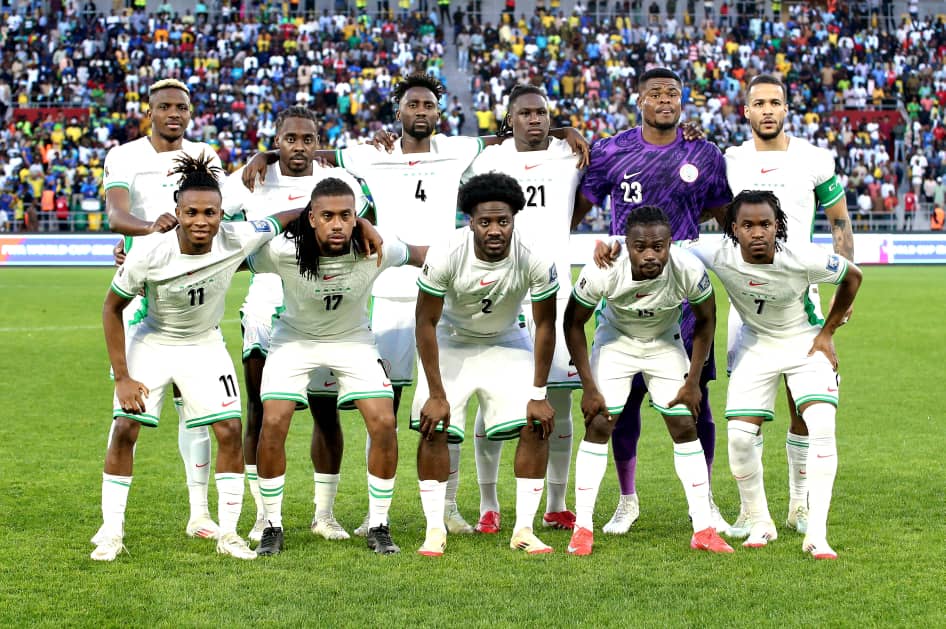

Chairpersons and delegates from the New Patriotic Party’s (NPP) 30 external branches have submitted a petition contesting a directive from the party’s Presidential Elections Committee (PEC) that bans proxy voting in the upcoming presidential primary.
The petition, dated November 10 and addressed to the Chairman of the National Executive Committee (NEC) through the General Secretary, argues that the PEC’s November 6, 2025, directive violates the NPP’s constitution and unfairly disenfranchises members living abroad.
The petitioners contend that the PEC “has no constitutional authority to unilaterally alter or prohibit proxy voting,” emphasising that such powers rest solely with the National Executive Committee, acting “in consultation with the National Council.”
They further describe the PEC’s decision as “ultra vires and void,” insisting it goes beyond the committee’s mandate.
According to the group, proxy voting has been a long-standing and legitimate practice within the party, allowing external branch delegates who cannot be physically present to take part in presidential and national executive elections.
“By established practice and precedent, delegates of external branches who are unable to be physically present during primaries have consistently exercised their franchise through proxy voting,” the petition noted.
They further stated that the directive “effectively excludes and disenfranchises delegates from the external branches in the forthcoming presidential primary,” stressing that Article 8 of the NPP Constitution expressly recognises the role and rights of external branches.
The petitioners described the ban as “a breach of legitimate expectation,” adding that proxy voting “has been the norm or a convention in presidential primaries.”
They argued that abolishing it abruptly “without reasonable and cogent justification violates principles of natural justice and fairness” and breaches Article 23 of Ghana’s 1992 Constitution, which demands administrative fairness.
They also cited the Political Parties Act, 2000 (Act 574), and Section 9 of the Political Parties Act, which requires internal party operations to comply with democratic principles.
The ban, they said, “makes it practically impossible for a whole class of accredited delegates from external branches to vote,” describing the decision as “undemocratic and arbitrary.”
The petition revealed that the Chairpersons’ Caucus of External Branches had earlier submitted a proposal to the PEC on November 3, suggesting alternative voting methods that would be “accessible, cost-effective, and democratic.”
However, the PEC “neither responded to this constructive proposal nor engaged the Caucus in dialogue,” before proceeding with the ban.
“The decision, without providing an alternative mechanism, effectively disenfranchises a vital constituency of the party’s global membership and undermines inclusiveness and democratic integrity,” the petition said.
The petitioners also expressed concern about the financial and logistical burden placed on delegates living abroad, estimating that each delegate would need to spend about USD 3,000 on travel and accommodation to vote in person.
“This makes participation extremely difficult and, for many, impossible,” they said.
They further noted that proxy voting has always been part of Ghana’s wider electoral process, including in national elections managed by the Electoral Commission, and therefore should not be abandoned within the party.
“The removal of proxy voting without providing a workable alternative overlooks the operational realities of external branches and effectively denies us the means to exercise our legitimate right to vote,” they said.



#NPP #external #branches #petition #party #proxy #voting #ban














Leave a Reply